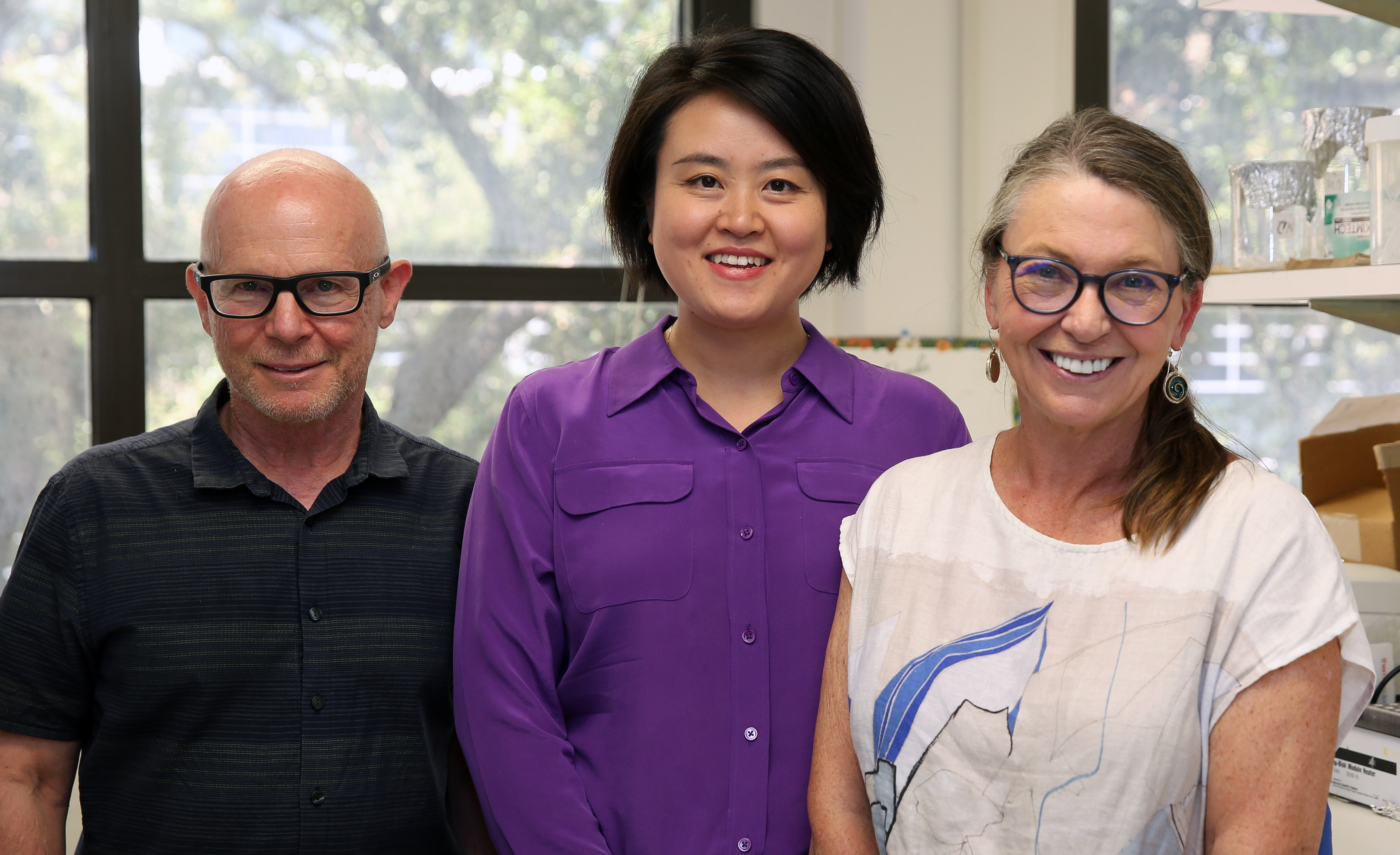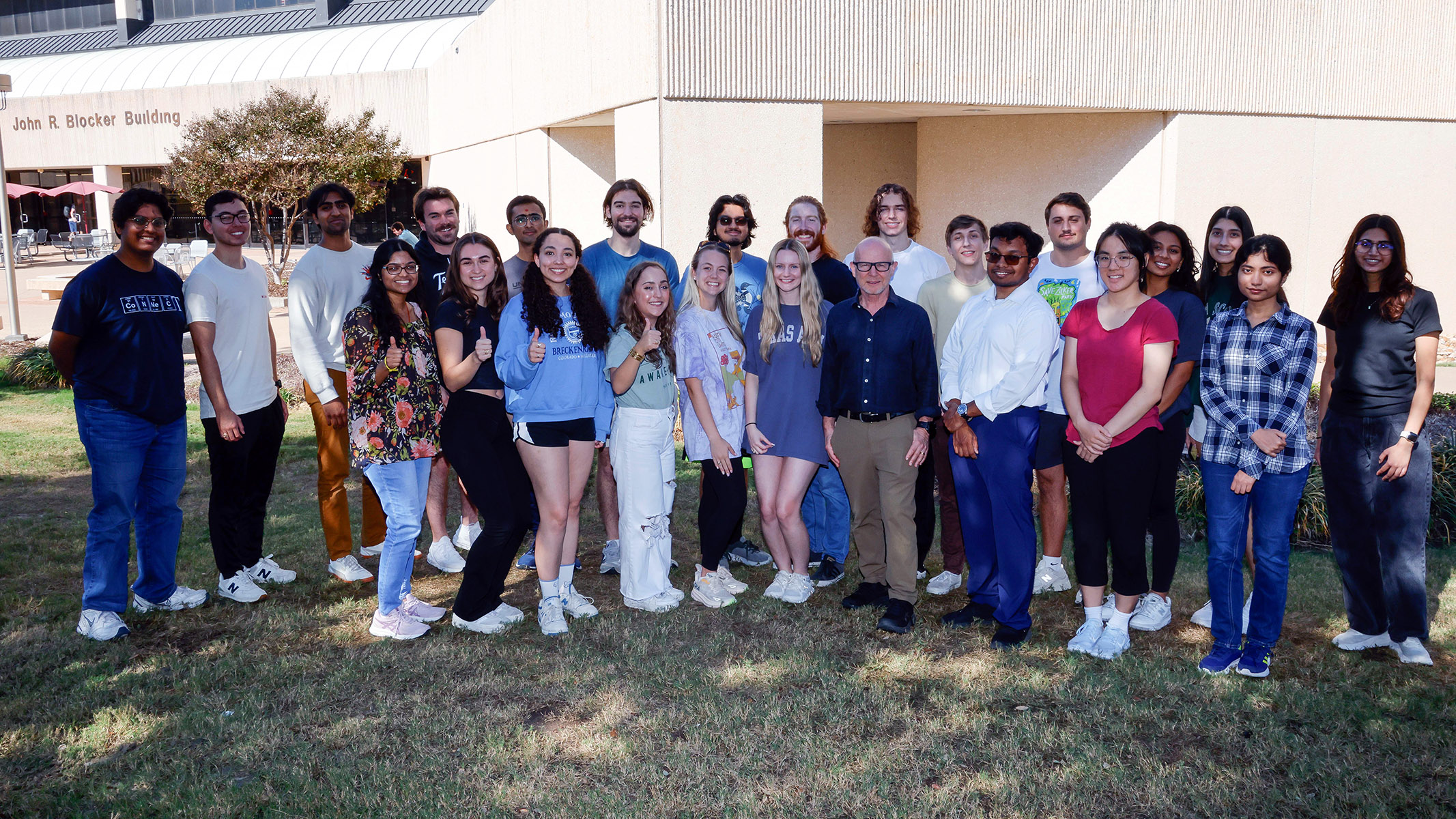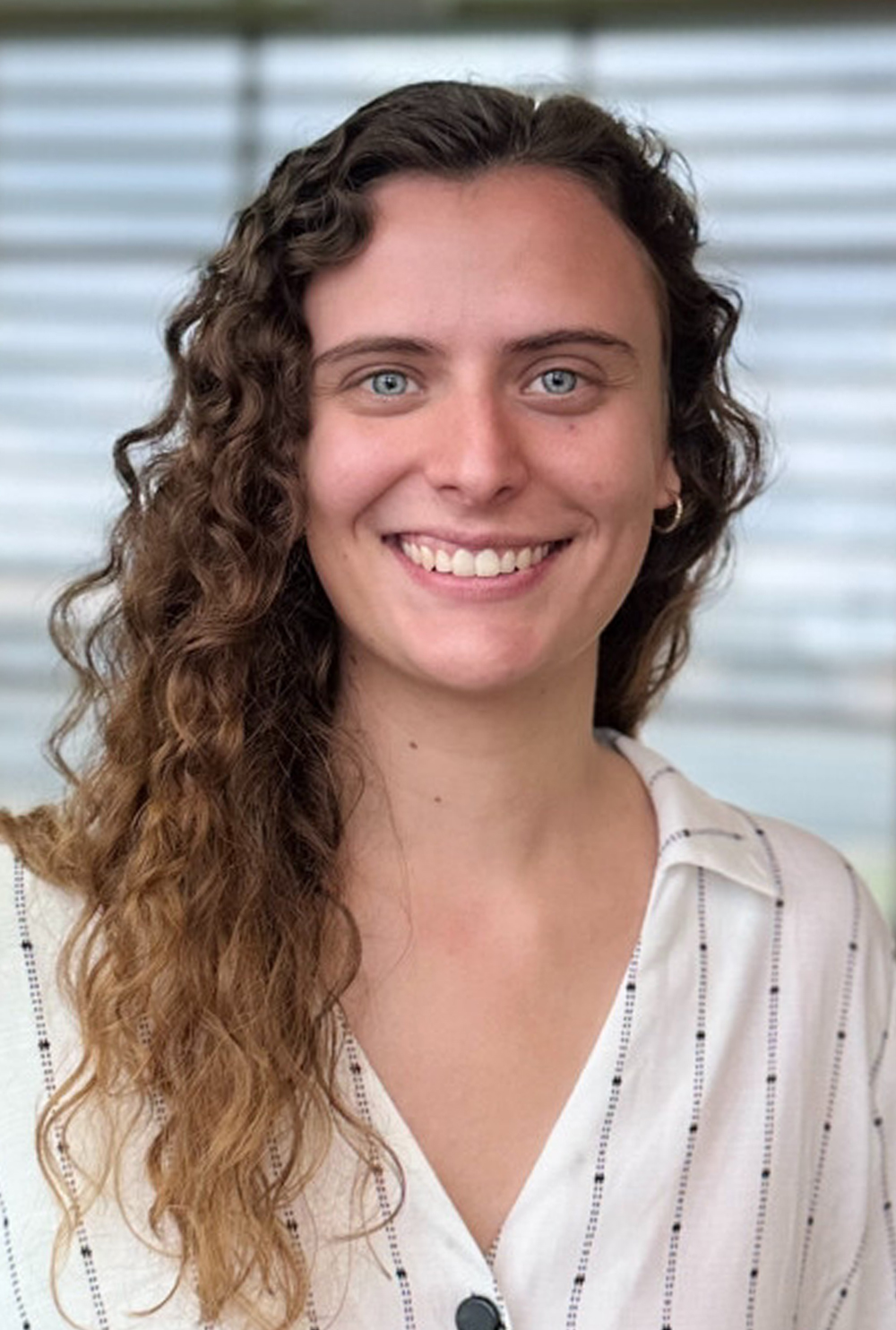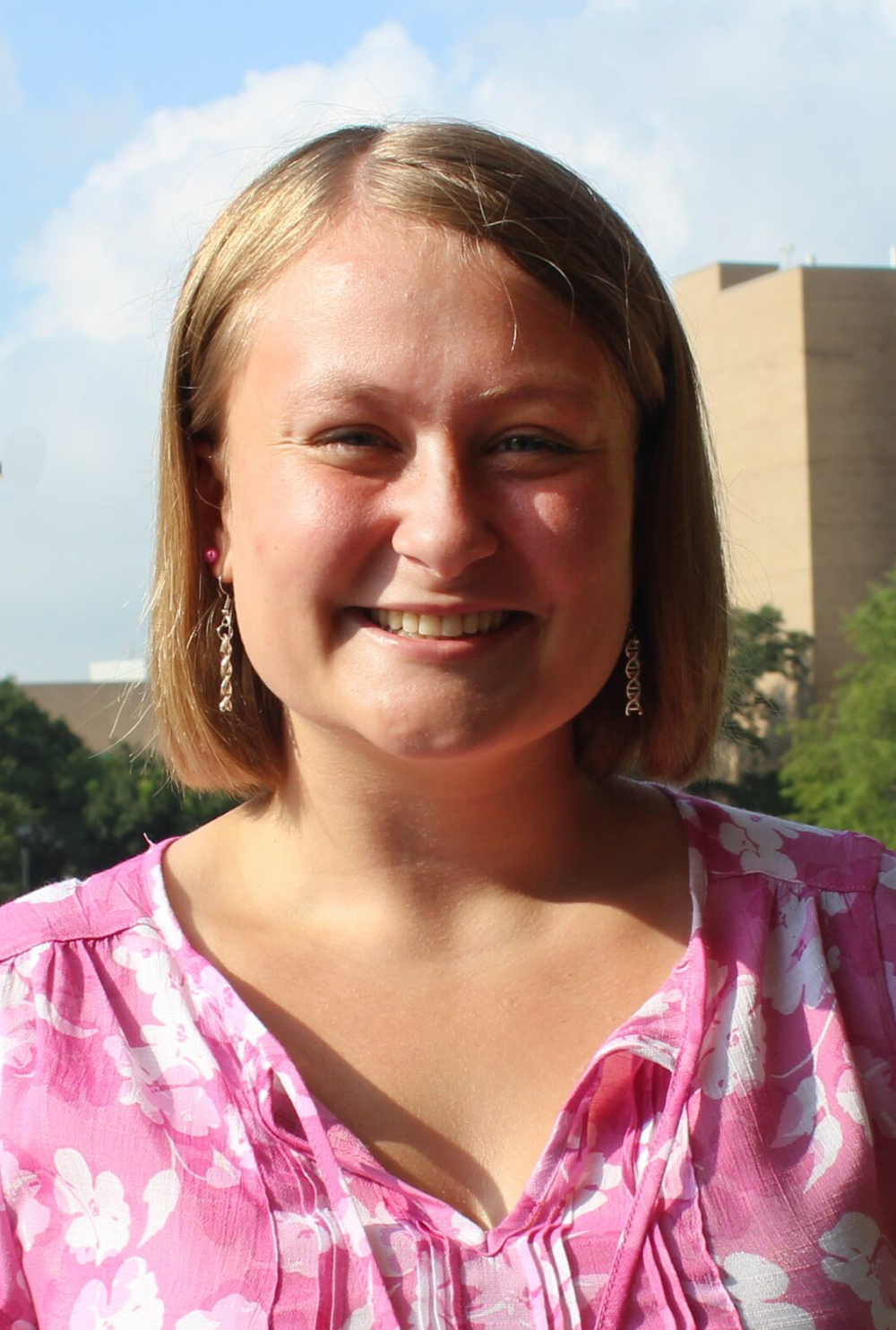
Twelve years ago, Texas A&M University Professor Dr. Matthew S. Sachs made it his mission to help Department of Biology students involved in undergraduate research become better science communicators by creating a capstone writing course, BIOL 495: Research Communication in the Life Sciences. Three years ago, fellow Texas A&M biologists Dr. Deborah Bell-Pedersen and Dr. Wanhe Li joined him at the head of the class, which they say has been as transformational for them as it has been for their students.
The capstone course provides the framework for Texas A&M Biology Honors Program students to develop and hone comprehensive scientific communication skills spanning review and analysis of scientific literature, hypothesis testing, scientific ethics, communicating their research results in writing and via oral presentation, and crafting related professional documents. Uniquely tailored to each student, the course is designed to crystallize their hands-on research experience — generally obtained through BIOL 291 or BIOL 491 independent research courses — into a comprehensive capstone involving a refined curriculum vitae, a meticulous literature review, a peer-reviewed research manuscript and a formal scientific presentation
Somewhere in the course of educating hundreds of students in the art of scientific writing, the three professors realized the lessons they were imparting were also paying off for them, to the tune of nearly $7 million in cumulative grant funding from the National Institutes of General Medical Sciences (NIGMS) alone during the past two years to support their research programs in fundamental biology.

“Science writing is a dynamic, iterative process honed through drafting, feedback and revision and an essential skill for both budding and established researchers,” Sachs said. “One secret to related success, at least when it comes to crafting award-winning research proposals, apparently lies in teaching a writing-intensive capstone course.”
Teamwork Makes The Dream Work
Sachs, whose research focuses on control mechanisms regulating gene expression, recently received a new research project award — the original and historically oldest grant mechanism offered through the National Institutes of Health — from NIGMS to determine how the process of protein synthesis is controlled by the level of a critical metabolic compound in fungal cells. Within the same timeframe, Bell-Pedersen, Terry Thomas University Professor of Biology and an expert in chronobiology, mRNA translation control and other mechanisms underpinning the biology of cellular clocks, was appointed as a University Distinguished Professor in 2023 — the same year in which her 2018 Maximizing Investigators’ Research Award (MIRA) from NIGMS was renewed along with her funding from the WoodNext Foundation. Meanwhile, Li, a Cancer Prevention and Research Institute of Texas (CPRIT) Scholar in Cancer Research, was recognized for her cutting-edge work on mechanisms underlying social isolation-induced behavioral changes with an early-stage MIRA grant in 2023.

Sachs and Bell-Pedersen previously teamed together to teach a capstone research program course enabling undergraduate biology majors to contribute to genome analysis of the model organism Neurospora crassa, a fungus more commonly known as bread mold. Sachs was one of the principal investigators on the National Science Foundation-funded project that obtained the first genome sequence of this fungus, while Bell-Pedersen created the first DNA chips containing the fungus’s genes that led to major insights into its biological clock, such as how it generates and controls daily rhythms in protein production — processes which are critical to human health and drug metabolism.
While Sachs has taught the course every fall since its inception, 2022 marked a significant expansion, most notably the addition of Bell-Pedersen and Li as its co-leaders. The course has served nearly a hundred students with its past three offerings alone and, despite having to adapt to the post-pandemic landscape in order to virtually convey one of the most fundamental aspects of scientific communication — receiving and learning from constructive criticism — remains popular with a target demographic largely shaped by lockdowns and virtual learning.
“Employing their research expertise in social isolation and mental health, the professors established an environment where we learned to embrace criticism as an avenue for growth, resilience and improvement,” said 2023 Texas A&M biology graduate Kelsey Mainard ’23, a current biology Ph.D. candidate who took the course in 2023 and earlier this year had the opportunity to help represent Texas A&M at the 2024 Society for Research on Biological Rhythms Conference in San Juan. “The scientific writing and communication skills we gained in this class will have long-lasting impacts on our professional careers.”

Transformational Assignments
For Li, that initial teaching assignment as she began her independent academic career at Texas A&M in 2022 proved to be the springboard to her subsequent achievement of the rare perfect score on her NIH grant application, not to mention a testament to the transformative power of innovative pedagogy.
“I was in the process of writing my first grant proposal when I was preparing for teaching this class,” Li recalled. “The established curriculum by Dr. Sachs tremendously inspired me. I applied his systematic approach in scientific writing to crafting my proposal. I also vividly remember many discussions with my co-instructor, Dr. Bell-Pedersen. We shared tips on overcoming writer’s block, perfecting figures, curating the bibliography and crafting presentations. We also had a lot of conversations on how to instill a passion for science and scientific communication. I am grateful for learning from my excellent colleagues while teaching this writing course”
Subsequent writing success isn’t reserved for course instructors, as evidenced by 2024 Texas A&M biology graduate and course alumna Sydney Christensen, a current Ph.D. candidate in the Interdisciplinary Graduate Program in Genetics and Genomics. In addition to co-authoring a paper with her mentor, 2022 biology Ph.D. graduate Amy Tan, as a member of Texas A&M biologist Dr. Bruce Riley’s laboratory, Christensen served as first author on a paper written with Riley that recently has been accepted for publication. As an undergraduate, she was an Astronaut Scholarship Foundation finalist and one of only 14 students chosen for the Summer Program in Cancer Research at MD Anderson Cancer Center, where she was awarded runner-up for best poster and was one of 10 finalists in their elevator speech competition.
Learning to effectively communicate scientific research is essential for making complex ideas accessible, fostering collaboration and advancing scientific progress.
Bell-Pedersen, whose many Texas A&M career honors beyond the highest honorific designations for faculty rank include distinguished achievement awards for both teaching and research as well as the Texas A&M Aggie Women Network Eminent Scholar Award, notes that she and her colleagues represent but one of the myriad campus-wide personifications of the symbiotic relationship between teaching and research. She credits the trio’s transformative capstone course with helping to shape not only the next generation of scientists but also the landscape of scientific discourse and discovery at Texas A&M.
“Learning to effectively communicate scientific research is essential for making complex ideas accessible, fostering collaboration and advancing scientific progress,” Bell-Pedersen added. “Clear communication ensures research can influence policy, address global challenges and engage the public, promoting trust in science and combating misinformation. It also helps secure funding, supports career development and ensures that scientific discoveries lead to real-world benefits. By sharing research effectively, scientists can amplify their impact and drive meaningful change in society.”
Learn more about the Biology Honors Program or how to get involved in undergraduate research in Texas A&M Biology.

